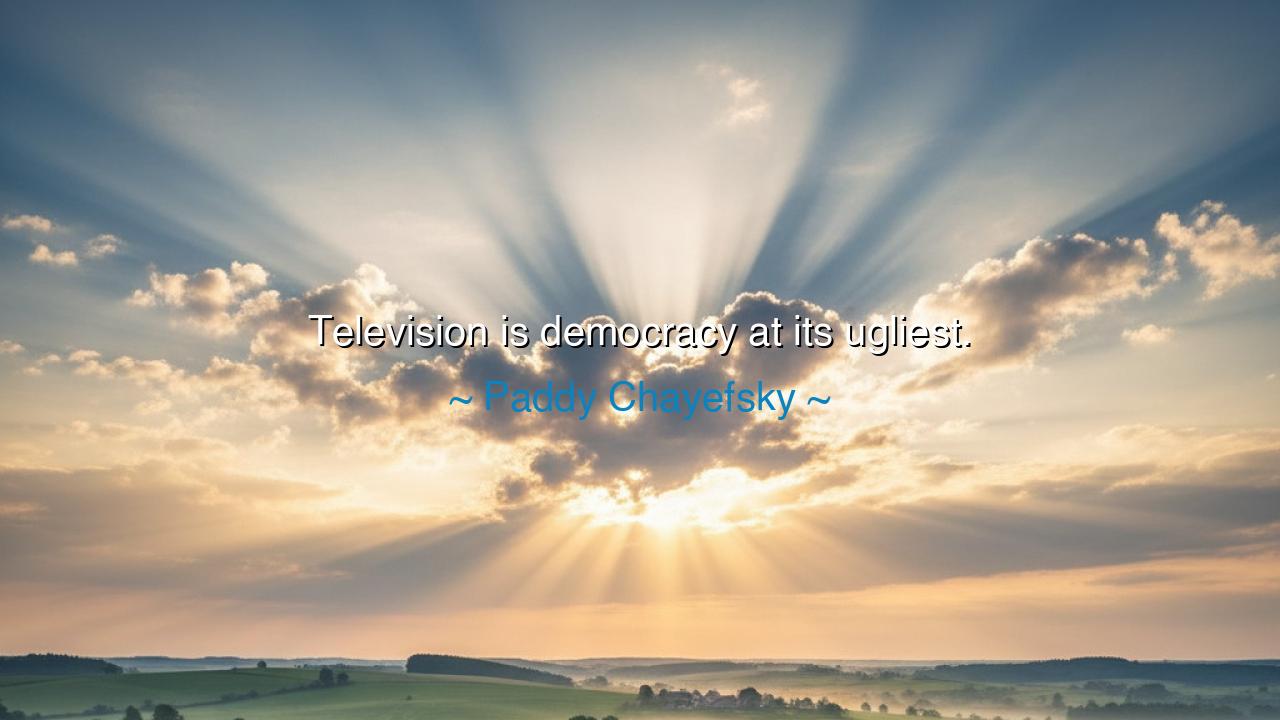
Television is democracy at its ugliest.






The words of Paddy Chayefsky, master satirist of American life and author of Network, strike with raw and unsettling force: “Television is democracy at its ugliest.” In this saying, he reveals the paradox of television—a medium that brings every voice, every image, every spectacle into the public square, yet in doing so, it often magnifies the lowest instincts of the crowd. Democracy promises equality of voice, but when filtered through the glowing screen, it can descend into chaos, spectacle, and manipulation.
The ancients feared this same decline. Plato, in his Republic, warned of democracy’s weakness: that when every voice is given equal weight without wisdom, the people may be swayed by demagogues, choosing not the noble but the loudest. Chayefsky saw in television the very fulfillment of this fear—where entertainment eclipses truth, where shouting replaces reason, and where the mob’s appetite, not justice, drives what is shown.
Consider the history of Richard Nixon’s debates with John F. Kennedy in 1960. On radio, Nixon seemed steady and wise; but on television, his pale face and nervous sweat betrayed him. The public, swayed by the image rather than the argument, judged Kennedy the victor. It was a turning point that proved Chayefsky’s point: democracy on the screen does not always elevate the best, but often rewards appearance, charm, and spectacle.
Chayefsky’s own creation, the film Network, carried this warning to its fullest. He depicted a television anchor turned mad prophet, whose rants against the world captivated the masses. The people cheered not for wisdom, but for outrage. Truth became entertainment, and democracy, mediated through the camera, became grotesque. His words are not rejection of democracy, but a warning that its ugliest face emerges when truth is sacrificed for spectacle.
Let the generations remember: the tools of democracy can be twisted into their own destruction. When the public square becomes a stage, and reason gives way to spectacle, then democracy shows its darkest side. Chayefsky’s wisdom is a torch held high: to remind us that if we allow television—or any medium of mass communication—to shape truth into spectacle, we will see not the nobility of the people, but their ugliest hunger for noise. True democracy must rise above the screen, lest it be consumed by its own reflection.






AAdministratorAdministrator
Welcome, honored guests. Please leave a comment, we will respond soon